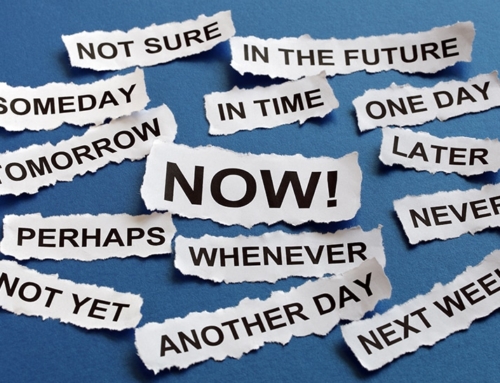Earlier this week I was listening to an hour long interview with someone I never knew before, Dr. Ellen Langer, a social psychologist who has studied mindfulness and cognitive reframing from the 1970’s. Although the entire podcast was of interest to me, one topic Dr. Langer spoke about particularly stood out and excited me. I’m always on the lookout for effective ways of making positive changes, changes we can implement in our own lives as well as, perhaps, share with our patients to use for their journeys.
Dr. Langer said simply this (I’m paraphrasing), “Don’t ask yourself, ‘Can I?’ Rather ask ‘How can I?’ It’s a small but significant difference.”
Indeed it is. When you ask yourself “Can I <fill in the blank>”, you have no way of knowing. You can only refer to what you’ve done in the past and, if what you are considering is something new, then the past is a poor guide. The question that asks if you can accomplish something you’ve never done before is perfectly designed to build doubt: it becomes easy to ruminate about past failures and to worry about future failures.
So, if you instead ask yourself, “How can I <fill in the blank>?” you are presuming that a way forward exists. It moves a person from rumination and worry to a problem-solving stance. It takes the ego out of it by moving attention away from the person and onto the challenge.
I’d like you to try if right now. Repeat both versions of the question and notice how you feel: “Can I do whatever?” And “How can I do whatever?”
When I tried this myself I felt a noticeable mental tension upon saying the first question. When I said the second sentence, rather than an uncomfortable tension, I felt a more positive excitement about wanting to try.
The second way these two questions differ is that “How can I?” presumes that a way of accomplishing the change exists. It’s a matter of brainstorming, of using creativity to come upon the solution.
So, try it now for real. Choose something about your life that you’d like to change. Choose something that will really make a difference in your level of life satisfaction (by increasing it) or in your level of stress (by making it go down). Then make is specific. Here are several examples, some of which may resonate with you:
- How can I take a two-week vacation twice a year?
- How can I get out of the office an hour earlier each day?
- How can I make $100,000 a year through non-clinical work? (My friend is working on this one because he wants to refocus his career on writing and speaking.)
- How can I ensure all my paperwork is done by the end of each week so it doesn’t hang over me on weekends?
- How can I better keep up with my professional readings and study?
- How can I spend an hour more with my kids each day?
- How can I make a home-cooked meal three times a week?
- How can I care for all the patients in my clinic – the numbers have grown immensely with Obamacare – without expanding staff or working myself ragged?
I always like to hear from you. But this time I would REALLY LOVE to hear from you. Your goals and the solutions you come up with would be of great interest to other readers, I’m sure.
Until next time,
Dr. Jack
LanguageBrief
Keep the Ball Rolling
Keep the ball rolling” means to keep a project moving forward, often used when progress has slowed or challenges have emerged.
This phrase originates from the US election of 1840. The campaign of General William Henry Harrison concocted a way to signal the coming of a campaign rally to whichever hamlet the campaigners were arriving at by having them push a ten foot in diameter tin and leather ball along the road from the last rally. As the ball rolled along these dirt roads, children and adults living along the route joined in.
The people running Harrison’s campaign thought up many ways of conjuring up enthusiasm for a relatively unknown candidate.
Do I need to say that William Henry Harrison won, becoming our ninth president.






Leave A Comment